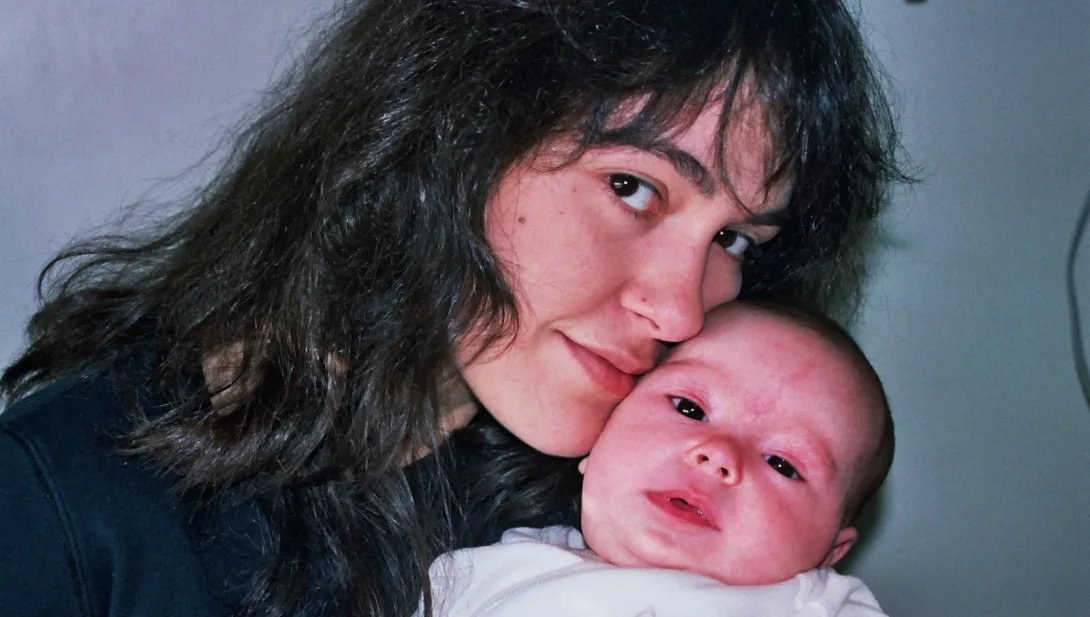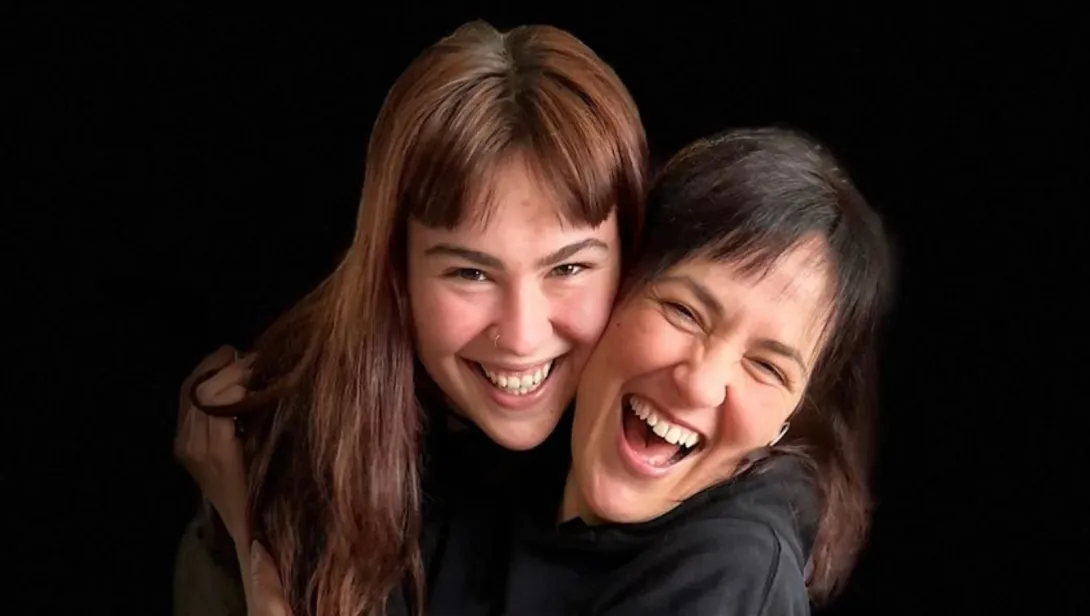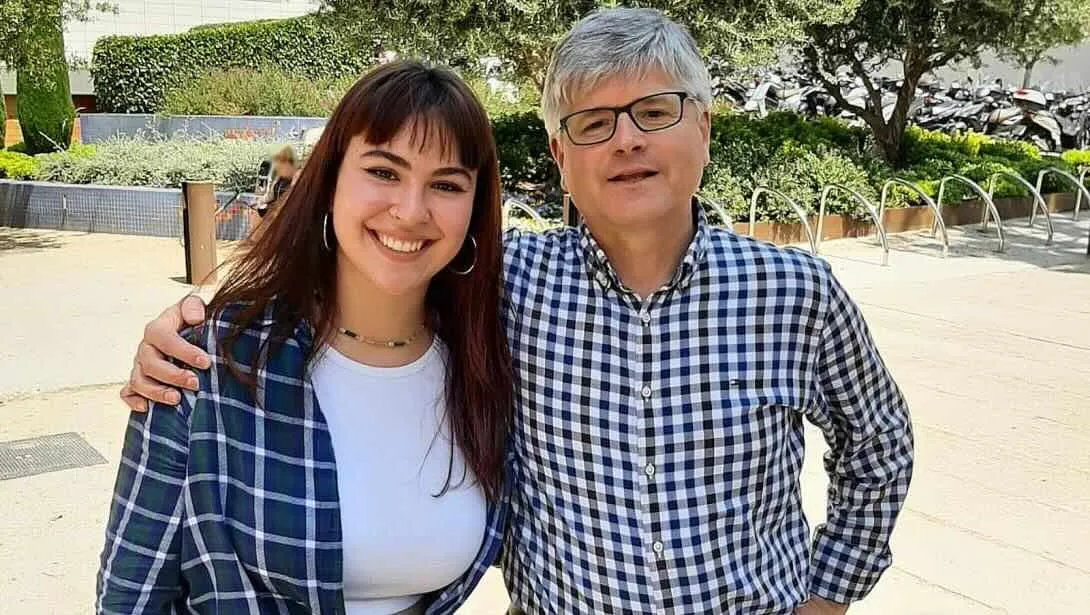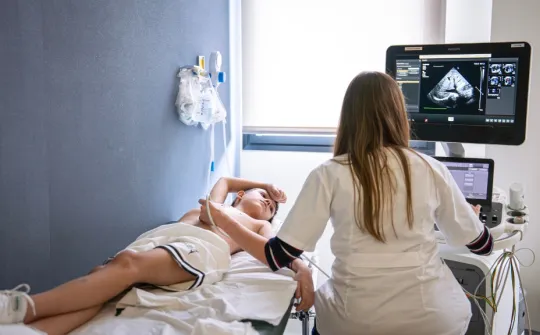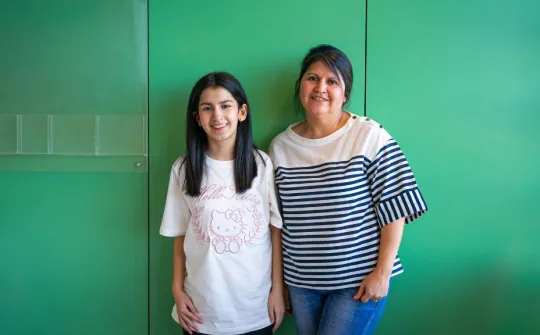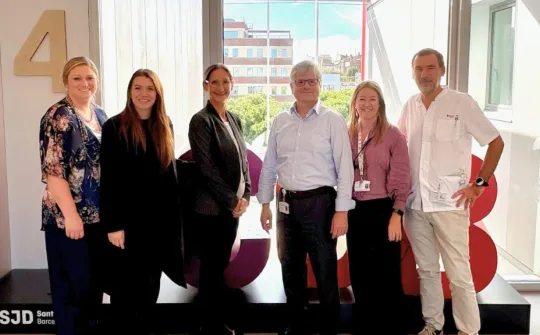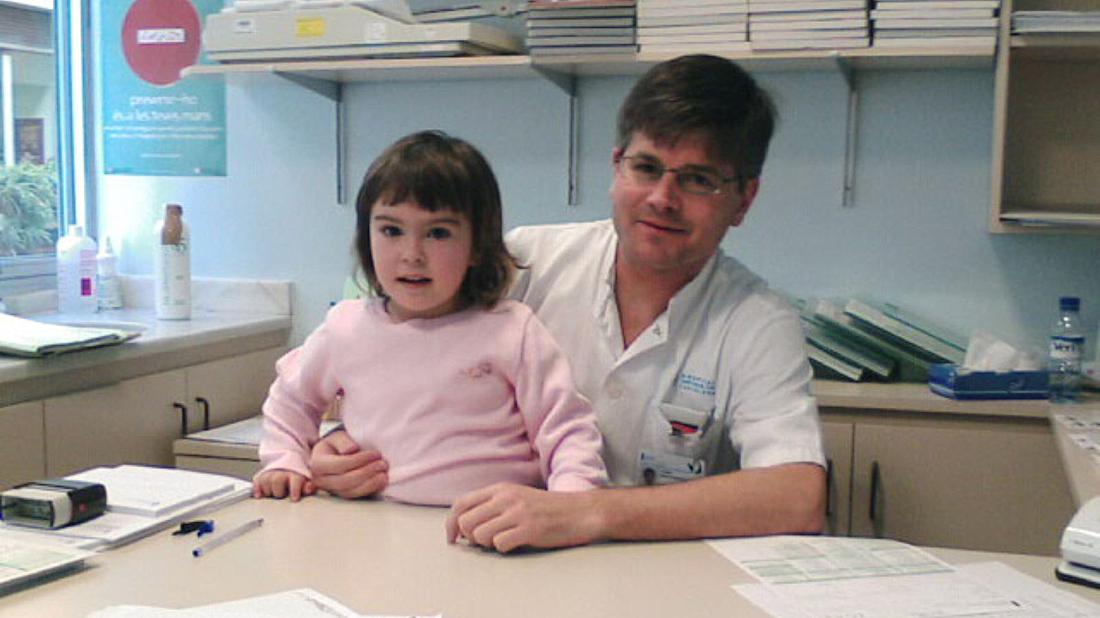
She was the first patient at the SJD Barcelona Children's Hospital for whom researchers diagnosed her neuroblastoma, and she only required surgery. The girl is currently 19 years old and is completely healthy
Mar was born with a large tumour in her abdomen. "She looked like a malnourished baby you would see on TV", remembers her mother. The tumour was so large that Ester's Obstetrics team had already spotted it during the second trimester ultrasound.
‘So the healthcare professionals at my referring hospital decided to closely monitor the situation, but not intervene. They wanted to wait for me to go into labour on my own, but in the end they did a Caesarean. It was a sad, bittersweet moment, because on the one hand, I had my daughter in my arms, but on the other hand, my baby was sick, and we didn't know what would happen or how things would turn out’ recalls Ester, now, 19 years later.
Shortly after she was born, Mar was referred to the SJD Barcelona Children's Hospital. ‘The pediatrician told us that there was a young researcher who had just come from the USA that was researching the type of tumour our daughter had. That’s how we ended up in the hands of doctor Jaume Mora,’ she comments.
Once at the SJD Barcelona Children's Hospital, the baby had a CT scan which showed she had an adrenal neuroblastoma the size of an apple. The tumour had metastasised and had spread to other parts of her body, her liver in particular. ‘Although it was very hard to get news like this, we didn't lose hope, because the doctors told us straight away that it wasn't an aggressive tumour. I remember that they advised us not to search it on the internet because, if we did, we’d really scare ourselves,’ she reflected.
Tumour aggressiveness prediction method
The team at SJD Barcelona Children's Hospital who treated Mar were able to predict that she could fight the disease without the need for chemotherapy or radiotherapy, meaning that the tumour would spontaneously regress on its own. Jaume Mora, current Scientific Director of the SJD Pediatric Cancer Center at the SJD Barcelona Children's Hospital, remembers that, at that time, cases like Mar’s had started to be analysed, being described from 1971, but they could not yet be prognosed. ‘Research started at the Memorial Sloan Kettering Cancer Center (MSKCC) in New York, when I was there, and we completed the study upon returning to the SJD Barcelona Children’s Hospital. Gene expression profiles allowed us to identify which neuroblastomas would progress favourably, or spontaneously regress. Mar was the first patient we were able to prognose using the genes we had identified, so we decided to wait and see if the tumour regressed. And it did. Mar overcame this metastatic cancer without needing chemotherapy or radiotherapy,’ he explains.
Mar only needed an operation at two months old, in which surgeons would extract the primary tumour and analyse the gene expression within it. ‘Those were two intense months going back and forth to the Hospital, but once she was operated on, everything calmed down. It's as if they'd taken the engine out of the tumour. It stopped spreading and whatever had already spread elsewhere started to disappear,’ recalls Mar's mother.
‘Thanks to that tumour analysis, which let doctors predict it would behave in a benign way despite its apparently metastatic attributes, Mar was able to have a normal childhood just like any other healthy girl her age,’ explains Mora. "Had we not had access to molecular diagnostics technology, and had we not known the prognosis of her neuroblastoma, she would have undergone chemotherapy and radiotherapy treatment, meaning months of harsh treatments and potential side effects, as well as possible developmental repercussions. Her life could have turned out very differently", concludes the doctor.
For Ester, the nightmare was over quickly and everything turned out well. Luckily for Mar, who currently works as a school lunch monitor alongside her university studies in social education, this is just another story her parents tell when they talk about her childhood.
